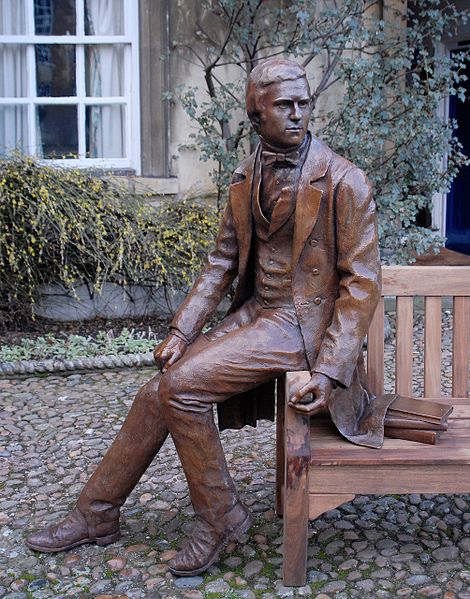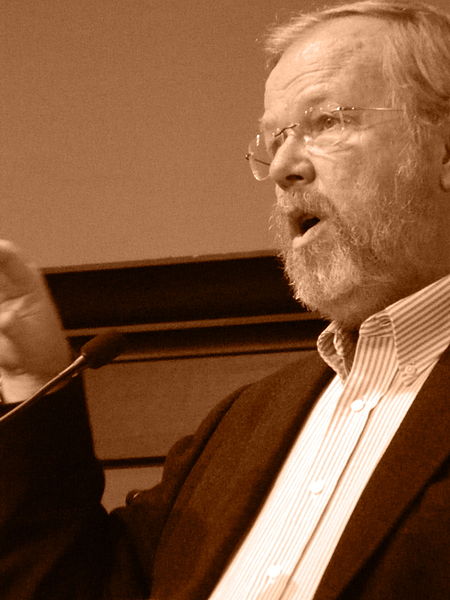Charles Robert Darwin was an English naturalist, geologist and biologist, widely known for his contributions to evolutionary biology. His proposition that all species of life have descended from a common ancestor is now generally accepted and considered a fundamental concept in science. In a joint publication with Alfred Russel Wallace, he introduced his scientific theory that this branching pattern of evolution resulted from a process he called natural selection, in which the struggle for existence has a similar effect to the artificial selection involved in selective breeding. Darwin has been described as one of the most influential figures in human history and was honoured by burial in Westminster Abbey.
Darwin, c. 1854, when he was preparing On the Origin of Species
A chalk drawing of the seven-year-old Darwin in 1816, with a potted plant, by Ellen Sharples
Bicentennial portrait by Anthony Smith of Darwin as a student, in the courtyard at Christ's College, Cambridge, where he had rooms
Darwin (right) on the Beagle's deck at Bahía Blanca in Argentina, with fossils; caricature by Augustus Earle, the initial ship's artist
Fellow of the Royal Society
Fellowship of the Royal Society is an award granted by the Fellows of the Royal Society of London to individuals who have made a "substantial contribution to the improvement of natural knowledge, including mathematics, engineering science, and medical science".
Headquarters of the Royal Society in Carlton House Terrace in London
Elected in 1672, Isaac Newton was one of the earliest fellows of the Royal Society.
Stephen Hawking was elected a Fellow in 1974.
Bill Bryson, elected as an Hononary Member in 2013








